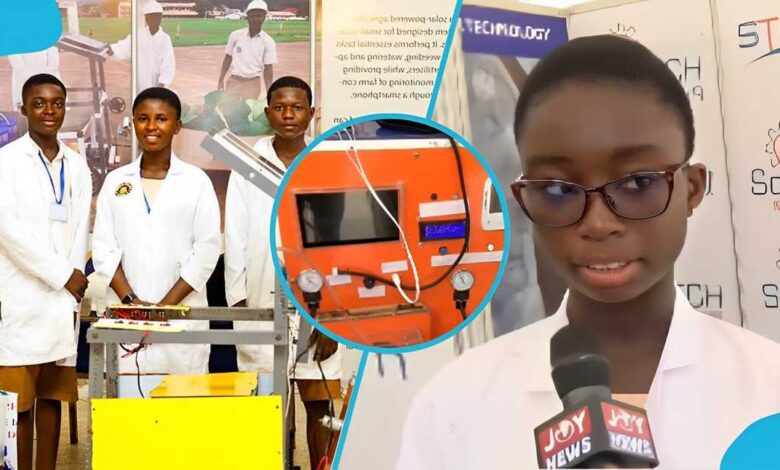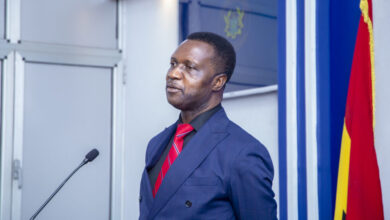Obuasi SHTS Students Create Solar-Powered Dialysis Machine, Seek Funding for Commercialization
Obuasi SHTS Students Create Solar-Powered Dialysis Machine, Seek Funding for Commercialization

- A group of innovative students from Obuasi Senior High Technical School has developed a groundbreaking solar-powered dialysis machine
- This project aims to provide an affordable, sustainable solution for kidney disease patients
- The team was motivated to work on this project after learning about the dialysis crisis
A group of innovative students from Obuasi Senior High Technical School (SHTS) has developed a groundbreaking solar-powered dialysis machine to address the critical shortage of dialysis equipment in Ghana.
This project, spearheaded by a team of science students, aims to provide an affordable, sustainable solution for kidney disease patients, particularly in underserved areas where power outages are common.
Serwaa Ankasa Abena Acheampong, one of the student leaders, explained the working principles of the device.
“This machine is designed to filter toxic substances, such as urea, excess salt, and dissolved minerals, from the blood of patients whose kidneys are no longer functioning properly. It operates using diffusion and osmosis, with contaminated blood being cleansed in the dialyzer and returned to the patient through a continuous four-hour cycle,” she explained.
The team utilized a combination of locally sourced materials and purchased components, including blood pressure sensors, electrocardiogram equipment, and solar panels, to build the device.
The integration of solar technology ensures uninterrupted operation even during power outages, a persistent issue in many regions of Ghana.
Priscilla Sampama, another member of the team, highlighted the machine’s advanced features, such as built-in sensors to monitor vital signs, including blood pressure, temperature, and blood flow rate. The device is also equipped with an automatic adjustment system and visual alarms to address any deviations during treatment.
However, the students noted that the prototype still requires further scientific refinement. They plan to improve components like the peristaltic pump, which needs to be robust enough to trap air bubbles that could harm patients.
“This machine requires further scientific refining before it can be commercialized. We want to enhance it by adding a peristaltic pump that traps air bubbles because if these bubbles enter a patient’s body, it could be fatal. So, we have several modifications in mind,” Serwaa added.
The team was motivated to work on this project after learning about the dialysis crisis at Ghana’s top health facility, Korle Bu Teaching Hospital, and across the country. Many patients face high treatment costs, and numerous hospitals lack adequate dialysis machines. Their goal is to make dialysis more accessible and affordable, especially in rural areas.
“With this prototype, we hope to reduce dialysis costs and offer a solution to areas with unreliable electricity,” said one team member.
The students are now seeking funding to refine and commercialize their invention. They estimate that with the necessary investment, the machine could be ready for use in hospitals and clinics across Ghana within two to five years.
“This is just the beginning. With the right support, we believe this project has the potential to transform healthcare delivery in Ghana,” they concluded.
The solar-powered dialysis machine was showcased at the PRIMETIME Sci-Tech Innovation Exhibition in Accra.





